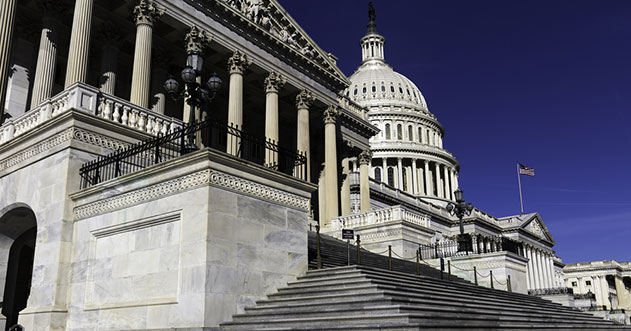The chief executive officers of Fannie Mae and Freddie Mac will have to wait two more weeks to see if Congress will vote to install limits on their compensation, after a busy Congressional calendar delayed a scheduled vote on the compensation packages of Fannie Mae CEO Timothy Mayopoulos and Freddie Mac CEO Donald Layton.
The House of Representatives was due to vote last week on limiting the pay of the Fannie and Freddie CEOs, but that vote was delayed by a combined house budget vote, a vote on reopening the federal Export-Import Bank, and a vote on electing Rep. Paul Ryan, R-Wis., as the new Speaker of the House.
Now, the vote on limiting the pay of the GSE CEOs is tentatively scheduled for the week of Nov. 16, according to the office of Rep. Ed Royce, R- Calif., who authored the House’s Equity in Government Compensation Act of 2015.
Royce’s bill, and a companion bill in the Senate, would cap the GSE CEOs' pay at its current level, which is $600,000, instead of the $3 million raises that were awarded to Mayopoulos and Layton earlier this year by the Federal Housing Finance Agency.
Royce introduced the Equity in Government Compensation Act of 2015 earlier this year. Then, after some bipartisan negotiation, the bill passed out of the House Financial Services Committee by a 57-1 vote on July 29, 2015.
The Senate version of the bill, which was authored by Sen. David Vitter, R-La., and Sen. Elizabeth Warren, D-Mass., was passed unanimously last month.
"Near universal support in both the House and Senate for capping GSE CEO pay is proof positive that multi-million dollar raises at taxpayer bailed-out and backed organizations are unconscionable,” Royce said upon the passage of the Senate version. "I applaud Sen. Vitter for his quick work in getting this bill through the Senate and will work to replicate his success in the House.”
Earlier this year, Federal Housing Finance Agency Director Mel Watt authorized the GSEs to propose new executive compensation plans for the position of CEO that may be as high as the 25th percentile of the market, or approximately $7.26 million a year.
The U.S. Department of the Treasury is not on board with the GSE pay raises either.
"Treasury has consistently communicated to FHFA that a change in CEO compensation at Fannie Mae and Freddie Mac is not appropriate, given that taxpayers continue to backstop both enterprises,” Adam Hodge, a spokesperson for the U.S. Treasury, said earlier this year.
“Ultimately, FHFA, not Treasury, has sole authority over executive compensation at Fannie Mae and Freddie Mac,” Hodge continued. “Nonetheless, Treasury strongly recommends that FHFA continue its existing limits on CEO compensation.”
But if the bill passes the House, as is expected, Congress will have stepped in to limit the FHFA’s authority in this case.
The White House appears on board with the bill as well.
White House Press Secretary Josh Earnest has said, "I think it is entirely legitimate for the executives at those institutions to be subject to compensation limits" when asked about the White House's view on executive raises at the GSEs.
The President is expected to sign this bill into law shortly after House passage.







